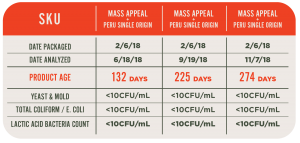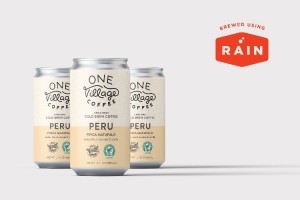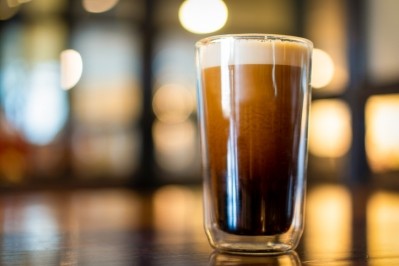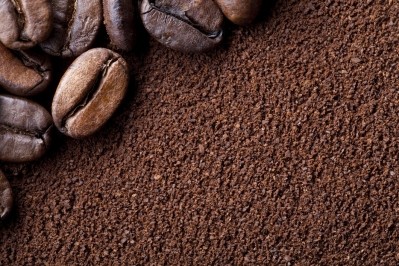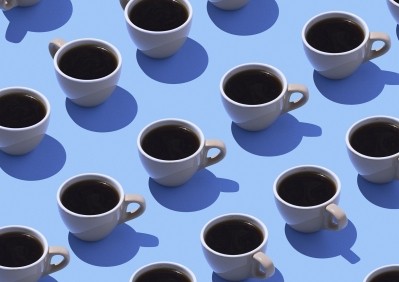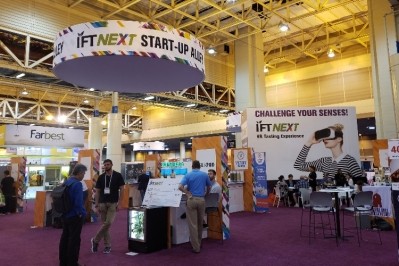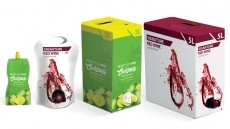Shelf-stable RAIN tech could change the canned coffee space
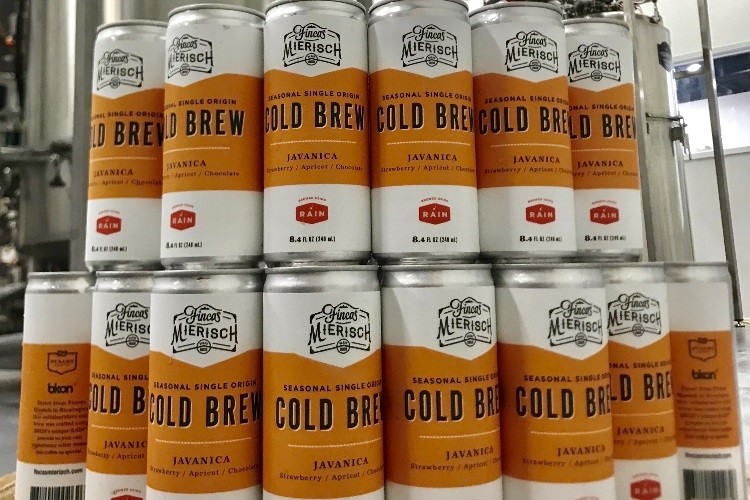
New Jersey-based beverage technology company BKON has set a focus on transforming craft refreshments. Through its patented RAIN (Reverse Atmospheric Infusion) technology, it can keep packaged drinks fresh for up to four months, and drinkable for longer.
The team has used canned cold brew as its first project, but believes RAIN can be applied across a wider spectrum. Lou Vastardis, co-founder of BKON, told BeverageDaily that the platform is versatile for all beverages and formats, like coffee, tea, enhanced water and cocktails, made with any botanical, fruit or solvent.
BKON announced results of a new study in May conducted with a third-party lab, EMSL Analytical Inc. It says that it proves its RAIN technology “both increases the freshness of packaged cold brew from 1-2 days to at least 120 days, and extends the life of the beverage for months further.”
A format-agnostic process
Vastardis said that BKON is currently working to validate its system with other beverage applications. They chose cold brew first because of the size of the industry and the obstacles it is currently facing, including flavor extraction, production efficiency, freshness and flavor stability.
Cans were also the first choice because the team assumed they would perform better with no light being exposed to the brew, unlike in a bottle. But Vastardis said that as long as it is a “clean, viable packaging format that doesn’t permit light or air to reach the beverage,” the recent results indicate the tech is ‘format-agnostic.’
“This is all about elevating and innovating the future of craft refreshments by creating an entirely new means of extracting the flavors that naturally come from fruits and botanicals,” Vastardis said.
Vastardis explained that the RAIN technology is able to control the use of reduced pressure in brewing, and how it influences flavor extraction from ingredients and other ‘value-added beverage outcomes.’
“First, a vacuum removes the gases from the ingredient’s structure. Water is then infused into the empty spaces, where it absorbs the flavors and aromas contained in the ingredients. By controlling the strength, duration and frequency of vacuum cycles, RAIN extracts far more flavor than traditional brewing methods,” BKON said.
To measure freshness levels in test coffee, BKON analyzing the sensory qualities of two RAIN-brewed coffee products over twelve months.
Experts at BKON and a partnering coffee roaster concluded that, “the desirable and distinguishing qualities of each product remained consistent for over four months, with fresh, consistent flavor through 120 days for one SKU and 180 days for the other SKU.”
The EMSL lab also found in its study that the cold brew coffee didn’t support the growth of any tested bacteria with undetectable levels up to 273 days, surpassing the industry standard of 45 days.
Craft Brewer vs Storm system
The difference between flavor stability and the promise of freshness is an important one to note, according to Vastardis. The fresh taste of cold brew is usually flattened after two days without protection, but the product can last much longer and still be drunk before ‘going bad.’
BKON says the extractions that RAIN does makes the fresh flavor last for up 120 days. Then when it starts flattening, the drink stays stable and doesn’t sour.
RAIN is currently available through two systems, the smaller, individual Craft Brewer and the industrial Storm designed for co-manufacturing partners. From an equipment standpoint, the Storm replaces the existing brewing component or engine with about a 6ft x 8ft footprint.
The Craft Brewer system operates a self cleaning cycle that produces more than 40 cups per hour, while the Storm can produce up to 50,000 gallons per month.
The company hopes that a big draw to this technology will come from the potential to grow the cold brew market. Single-origin coffees with distinct, recognizable flavor characteristics can now be spread more widely, and “the technology allows the craft side of coffee to replicate what’s so exciting about experiencing unique coffee,” Vastardis said.
“We witnessed this trend in the craft beer market, when consumer preferences shifted in favor of fresh, locally-brewed micro-beers, and we’re now poised to again bear witness to it in the cold brew coffee1 market, now that the technology is in place to offer a packaged product that stays fresh for the requisite amount of time.”
Short-lived flavor profiles
BKON also announced in May that it is partnering with specialty coffee roaster One Village Coffee to launch the company’s first line of canned cold brew products. It will be sold in six-packs and singles of 12oz cans at select retailers in Philadelphia, New Jersey and Maryland.
One Village Coffee President Andrea Hackman said, “Our customers started asking for cold brew about a year ago. But, we didn’t feel confident launching a product, as existing brewing methods resulted in a flavor profile that was short-lived and flat.
“Once we tested the RAIN brewing process, we immediately realized it was our solution. They were able to execute on our vision for excellent flavor and shelf life that we couldn’t accomplish on our own.”
